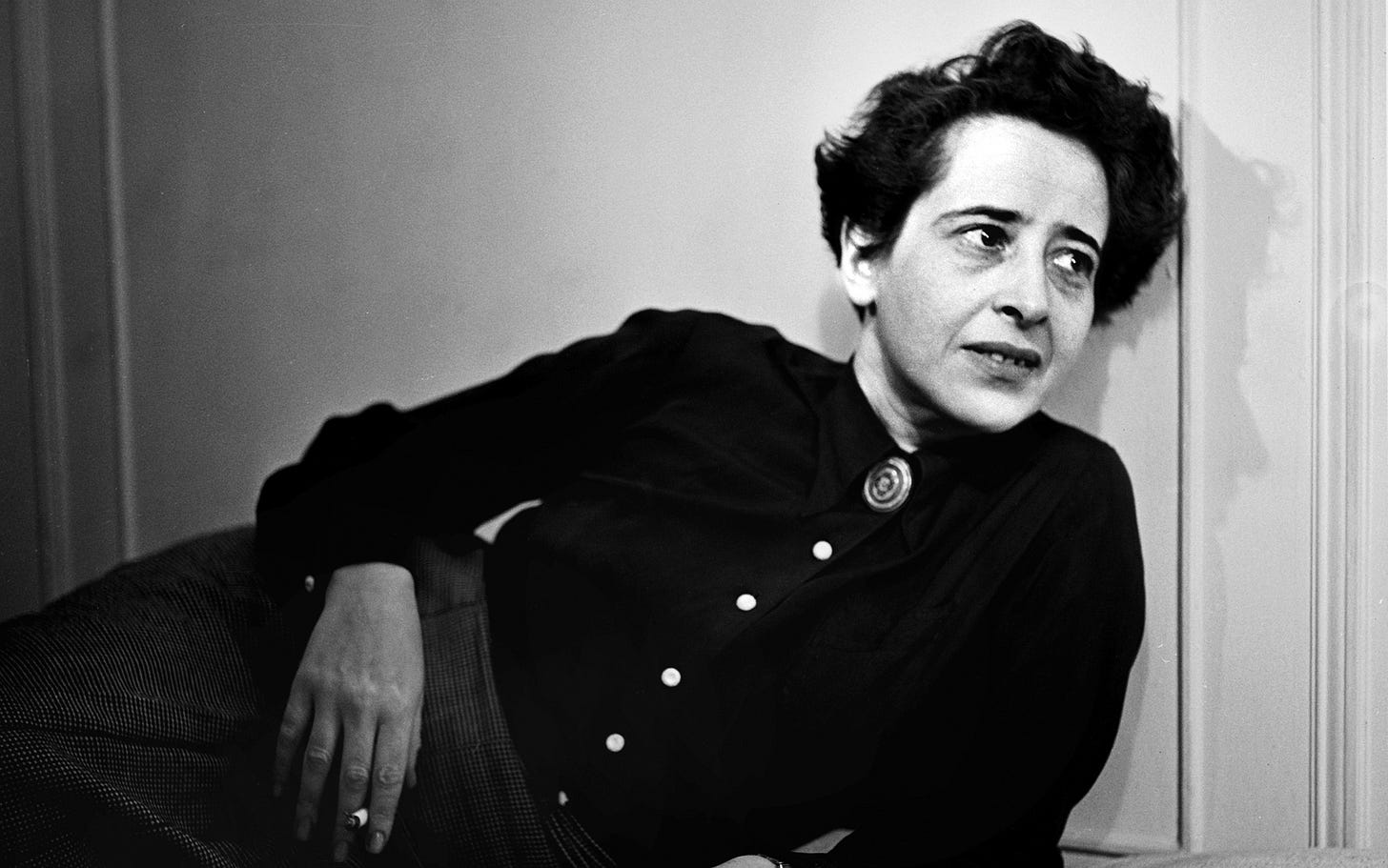Hannah Arendt: Personal Responsibility Under Dictatorship
Independent judgment is more important than strict adherence to prescribed moral standards.
Without taking into account the almost universal breakdown, not of personal responsibility, but of personal judgment in the early stages of the Nazi regime, it is impossible to understand what actually happened.1 (italics added)

In seeking to understand the heinous depravity of the Third Reich, and the complicity of non-ideologues in gross crimes against humanity, the German-Jewish philosopher and Holocaust survivor underscores the primacy of individual moral judgment, not of adhering to “a set of learned or innate rules.” I was initially surprised by Arendt’s thesis. Aren’t those people deontologically against murder, violence, and coercion the most likely to refrain from participating in political movements that go against these tenets? Hannah Arendt posits a persuasive argument against this assumption.
Arendt explains that judgment is much harder to subvert than “a set of mores… which [can] be exchanged for another set with no more trouble than it would take to change the table manners of a whole people.” In Hitler’s Germany, “it was precisely the members of respectable society” (italics original) who were the first to exchange one system of values with the abominable anti-Semitism of the Third Reich. Arendt argues that those who did not participate in the genocidal practices of the Nazi regime “refused to murder, not so much because they still held fast to the command ‘Thou shalt not kill,’ but because they were unwilling to live together with a murderer themselves.” Arendt avers that, since “moral norms and standards can be changed overnight,” the most reliable opponents of moral impermissibility are those doubters, skeptics, and independent thinkers who insist on “liv[ing] together explicitly with oneself,…, that is, to be engaged in that silent dialogue between me and myself which, since Socrates and Plato, we usually call thinking.”
When “extreme situations” confront the individual with political “impotence or complete powerlessness,” Arendt contends that direct opposition is not morally required: “it is obviously not everybody’s business to be a saint or a hero.” However, “personal or moral responsibility is everybody’s business,” all the time, and can be achieved through nonparticipation in public life under dictatorship. In order to defend against the “curious, almost automatic yielding under pressure, especially of public opinion,” we must first ask ourselves if we can live with ourselves if we abdicate our faculty of judgment to the will of the mob.
Hannah Arendt, “Personal Responsibility Under Dictatorship,” Responsibility and Judgment (2003).



